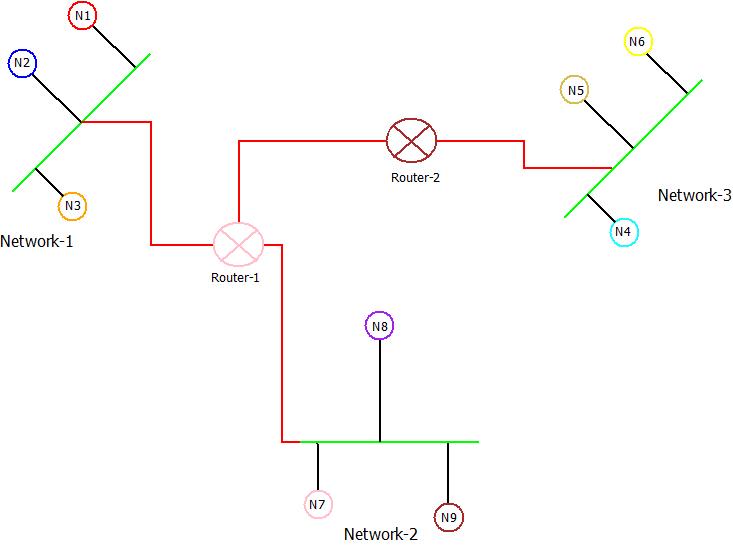Network Layer : OSI Model
- Network Layer is the third layer from bottom of the OSI Model and it is responsible for establishing data communication channel between multiple networks or nodes or devices or hosts.
- It means, Network Layer is held responsible for transportation of data packets between the devices or nodes that are not locally connected to each other.
- Data is forwarded in the form of data packets while using routing protocols to send these data packets to their respective destinations.
- Network-Layer is required when a connection needs to establish between two or more different networks. If two or more nodes or devices are connected or linked locally, network layer is of no use.
- Network-Layer defines the most optimized and shortest path for delivery of data packets from source address to destination address.

Network Layer : Functions & Features
- Network-Layer performs multiple functions and have many features too. One of the major function is to en-route the data packets from source to destination over different networks connected via routers.
- Logical addressing for all the devices present across the network is given by Network Layer called as Internet Protocol(IP) Address. It is a 32 Bit address which is unique for all the devices.
- Inter-Networking is another feature of the network layer. Whenever there is a need to establish connection between two or more independent networks, concept of Inter-Networking can be used.

Network Layer : Sample Architecture
- Multiple networks connected through routers and data transmission in the form of data packets is done, an optimized shortest path is chosen to transmit that from source to destination called route and this process is called routing.
- Quality of Service(QoS) is another important feature which ensures that higher priority based data packets are transmitted first rather than low priority data packets. It is also responsible for error detection and diagnostics.